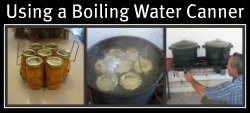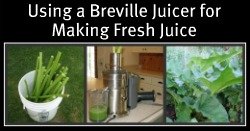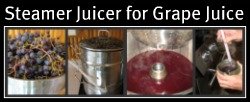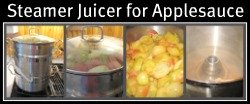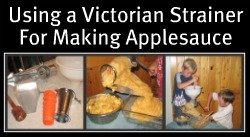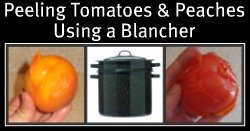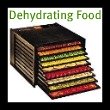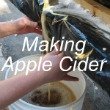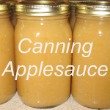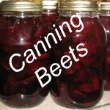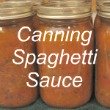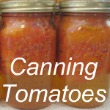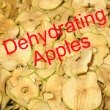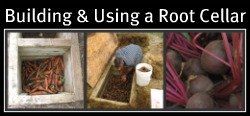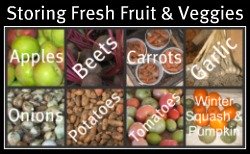
Canning Tomatoes
Canning tomatoes is an easy way to preserve your fresh garden tomatoes. You can use your canned tomatoes in soups, sauces, casseroles, etc. Learn how to can tomatoes with these easy step-by-step instructions.
Equipment and Supplies
- Fresh Tomatoes -
See Growing Tomatoes
- Plain Salt (optional)

- Wide mouth Canning jars work best when canning tomatoes -
Click here
to learn how to prepare your Jars, Lids, & Rings for canning
- Blancher
- Pressure Cooker or Boiling Water Canner
- Jar Lifter
- Blender (optional)
Picking Tomatoes

When you pick your tomatoes, pick everything that is starting to turn pink. When the tomatoes start producing, they come on fast. If you wait and only pick the red tomatoes, you’ll be picking tomatoes every day.
When you bring your tomatoes in, separate them into red, pink, and partly green. Within a few days, they’ll all be red. Can the red tomatoes.
How can you tell if a tomato is rotten?
If your not sure if a tomato’s ok– Smell it. Once you’ve smelled a rotten tomato, you’ll know exactly what I’m talking about. If it smells bad, throw away the whole tomato. One rotten tomato can sour the whole quart.
If it doesn’t smell bad, it’s ok unless you can see visible bad spots. Cut out the bad spots and use the rest of the tomato.
Peeling Your Tomatoes & Filling Jars
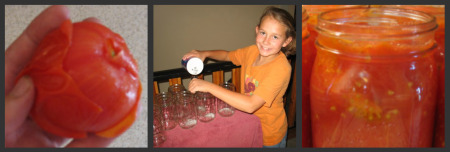
- After you blanch your tomatoes, the skins will slip right off. If you’re not sure how to do this
- Click here and learn how to
blanch your tomatoes.
- Cut out the tomato stems.
- Put 1 teaspoon of plain salt in each quart jar – ½ teaspoon in each pint jar.
- Now put your peeled tomatoes in the jars. If your using wide mouth jars, use your fist to push the tomatoes down. Just keep pushing them down until the jar is completely full.
You don’t even need to cut your tomatoes before you put them in the jar, unless of course they are too big to fit in the jar. If you want to cut your tomatoes, that’s just fine. But it isn’t necessary. When it comes time to use your tomatoes this winter, your processed whole tomatoes will easily break apart.
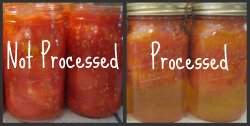
You don’t need to add water. The tomatoes cook in their own juice. As you can see in the picture, the tomato pulp floats to the top after the tomatoes have been processed.
- Leave a ½-inch headspace between the top of the tomatoes and the top of the jar.
Tomato Puree
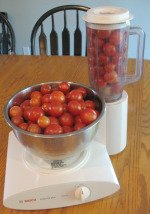
If you don’t want to peel your tomatoes, you can make a tomato puree.
- Cut the stems out of the large tomatoes (If you have a bunch of small tomatoes, don’t even worry about cutting out the stems).
- Blend the tomatoes up in your food processor or blender.
- Add the salt to your jars (1 tsp. for quarts - ½ tsp for pints).
- Fill your jars leaving a ½-inch headspace.
So easy! I use this method when I have of bunch of cherry tomatoes that I don’t want to blanch and peel.


Canning Tomatoes
When processing tomatoes you can use a boiling water canner or a pressure canner. - Click on the links for simple, picture book instructions if you’re not sure how to use a
boiling water canner
or a
pressure canner

when canning tomatoes.
Processing times for tomatoes are also listed on the boiling water canner page and pressure canner page.
Always remember to check the lid for a seal before you store your tomatoes. If you’re not sure how to do this –
click here.
Make sure you
Earthquake Proof
your food storage room.
Learn how to
preserve your tomatoes
so that you can still eat fresh tomatoes from your garden until Christmas. Also learn how to freeze the green tomatoes that weren’t harvested before the first frost.
Return To:
Home canning from canning tomatoes
Canning Spaghetti Sauce
Growing Tomatoes
Also check out (links coming)
Dehydrating tomatoes
Freezing tomatoes
Like this page? Share it. Here's how...
Would you prefer to share this page with others by linking to it?
- Click on the HTML link code below.
- Copy and paste it, adding a note of your own, into your blog, a Web page, forums, a blog comment,
your Facebook account, or anywhere that someone would find this page valuable.
















